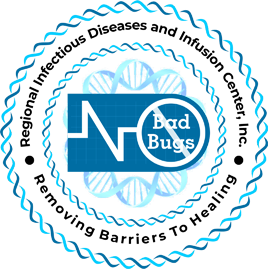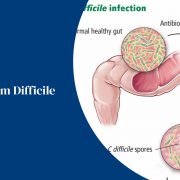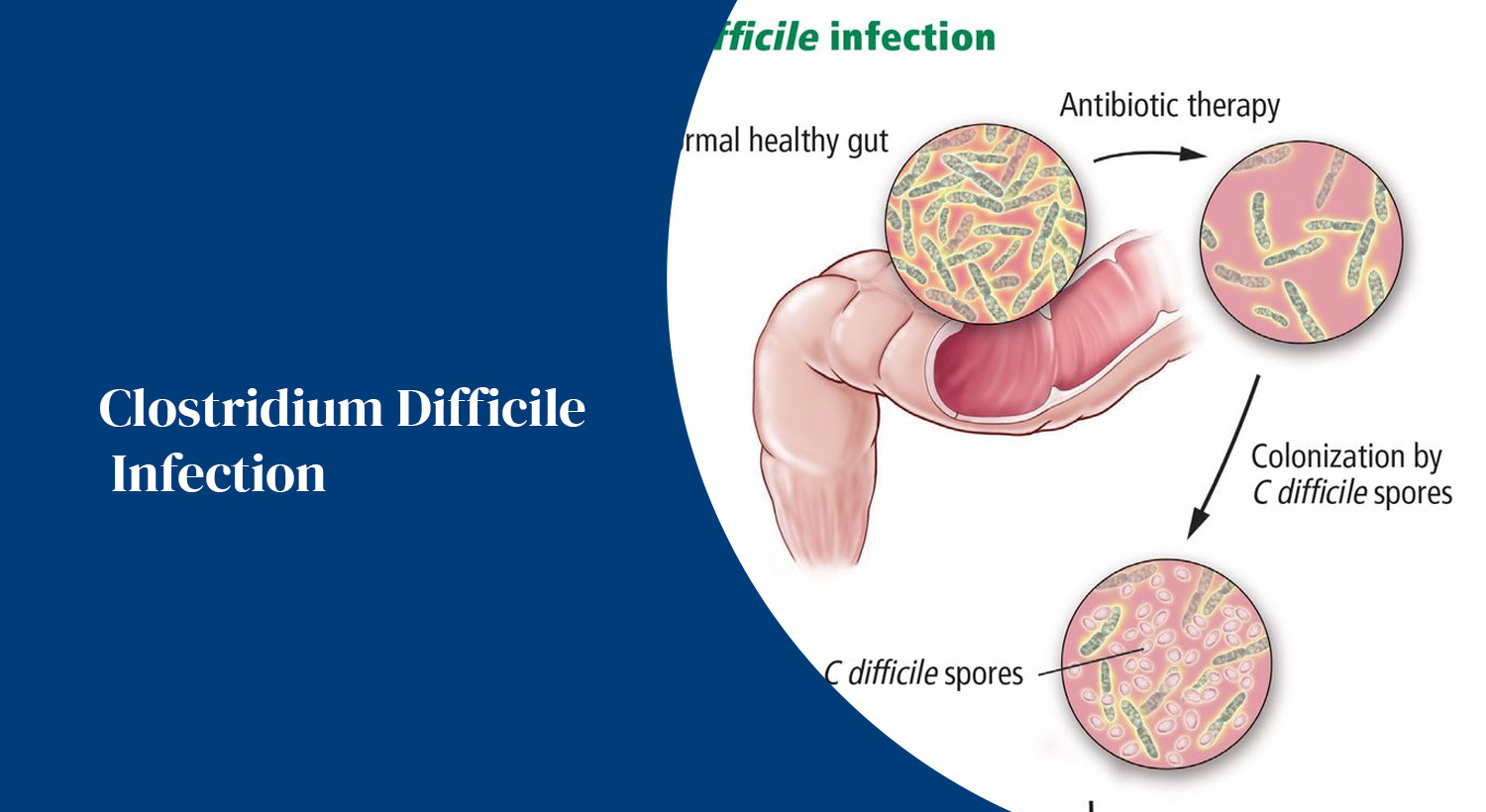What is a Clostridium difficile infection?
Clostridium Difficile occurs when bacteria (germs), called Clostridium difficile or C. difficile, affect the colon (large bowel). Normally, different bacteria live inside the colon and do not harm the body. There is a balance between good and helpful bacteria and bad bacteria, such as C. difficile. A clostridium difficile infection happens when this healthy balance changes. This may give C. difficile a chance to multiply and cause an infection.
C. difficile is able to enter the colon. It then releases chemicals that inflame (swell) the lining of the colon. A Clostridium difficile infection usually occurs in hospitals, nursing homes, and long-term care centers. It is also the most common cause of pseudomembranous colitis (swelling of the colon).
How does a Clostridium difficile infection spread?
The stool (bowel movement) of a person with a Clostridium difficile infection contains C. difficile bacteria. If an infected person does not wash their hands after having a bowel movement, they may spread the bacteria.
The bacteria may be passed from one person to another by simply touching someone’s contaminated (dirty) hand. The germ enters the body when the contaminated hand is put in the mouth. Clostridium difficile may also be found on contaminated surfaces such as bed rails, floors, windowsills, door knobs or toilet handles. Drinking water or eating food that has been contaminated by C. difficile may also spread the infection.
Isolation: You will be put into Contact Precautions while you are in the hospital if you have a C. difficile infection. This is done in order to prevent the spread of the disease to others. Caregivers and visitors will need to wear gloves and a gown. They must also do very good handwashing before entering and when leaving your room.
What increases the risk of getting a Clostridium difficile infection?
Age: In the elderly, the body changes and certain diseases can more easily affect you. Newborn babies also have an increased risk of being infected.
Antacids: These medicines decrease the stomach acid that can kill harmful bacteria.
Antibiotics: Antibiotics are medicines that kill bacteria, including the good ones. Taking them often may upset the balance between the good and bad bacteria in the colon.
Dormant infection: The C. difficile bacteria from a previous infection may still be in your system and may cause another infection.
Hospital stay: Staying in the hospital for a long time or sharing a room with a C. difficile infected patient increases your risk of getting C. difficile.
Nasogastric tube: This tube may also be called an NG tube or NGT. It is inserted through your nose and extends down to your stomach.
Weak immune system – also increases once being susseptiable to c.difficle
What are the signs and symptoms of a Clostridium difficile infection?
Diarrhea (loose, watery stools) caused by C. difficile infection may begin while you are taking antibiotics. Diarrhea may also happen up to six weeks after you have stopped taking the antibiotics. Blood, mucous, or pus may be present in your stools. You may have bad-smelling diarrhea up to 20 to 30 times each day with a C. diff infection. You may also have one or more of the following:
Fever, Cramping pain in the abdomen (stomach) ,Nausea (upset stomach) or vomiting, Dehydration due to vomiting or diarrhea.
How is a Clostridium difficile infection diagnosed?
You may have one or more of the following tests:
Stool test, Colonoscopy, Computerized tomography scan, Abdominal x-rays
How is a Clostridium difficile infection treated?
The treatment for C. difficile infection aims to replace lost fluids and prevent dehydration. Caregivers may need to stop or change the antibiotic you are currently taking. Anti-diarrheal medicines or opiates are not advised because they may make the infection last longer. You may receive one or more of the following:
Medicines:
Antibiotics: Antibiotics may be given to help treat C difficile infection.
Immune globulins:
Supportive therapy- Oral rehydration therapy, Intravenous therapy, Probiotics
Diet: You should eat a variety of healthy foods. These may include fruits, vegetables, breads
Surgery: Caregivers may need to do a colectomy if your C. difficile infection is very bad. This surgery removes the affected part of your colon. This may also be done if there are holes or leaks in your colon.
How can a Clostridium difficile infection be prevented?
Wash hands often with soap and warm water. Always wash hands after using the toilet and before preparing or serving food. Alchol based hand sanitizers do not kill the spores and so hand washing with soap and water is advised
Clean areas well using a household disinfectant. Pay special attention to the kitchen and bathroom.
If possible, the person with C. diff should use his or her own bathroom. If this is not possible, clean the toilet bowl and seat after each bowel movement.
Limit the use of antibiotics. Ask your caregiver for more information about the proper use of antibiotics. Take antibiotics only when needed and only as directed.
You are no considered to be longer contagious when:
Stools are formed (or less than 6 stools over 36 hours) and You have no further related symptoms (e.g. abdominal cramping or tenderness, fever, or stools with blood, pus or mucus.)
Call doctor if –
- You have a fever (increased body temperature).
- You have chills, a cough, or feel weak and achy.
- You have worsening diarrhea
- You have a hard time eating, drinking, or breathing.
- Your symptoms do not improve or are getting worse.
- You have questions or concerns about your condition, treatment, or care.


